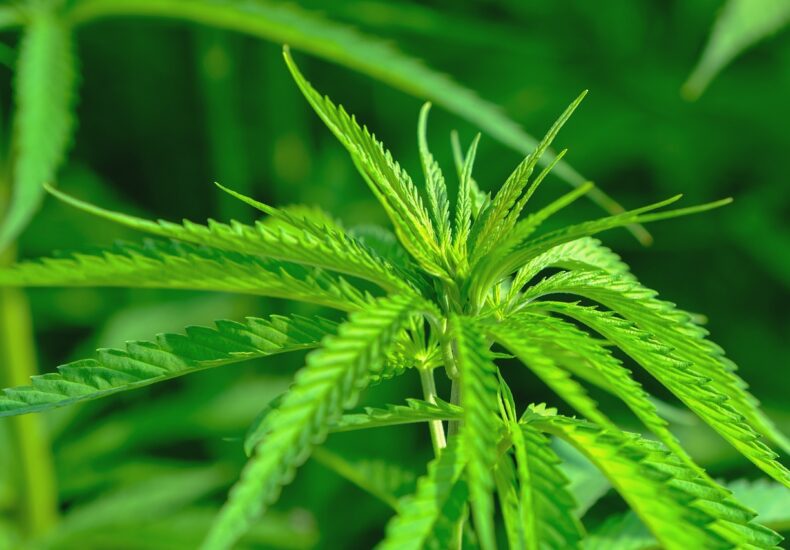
THCA Flower: A Game-Changer for Cannabis Users
The cannabis industry has seen a surge of interest in recent years, with new products and compounds continually emerging. One such compound that has captured the attention of both consumers and researchers is THCa flower properties, or tetrahydrocannabinolic acid. This non-psychoactive cannabinoid is found in raw cannabis and is gaining popularity for its potential benefits and unique properties.
Understanding THCA
THCA is the acidic precursor to THC, the well-known psychoactive component of cannabis. Unlike THC, THCA does not produce a high when consumed. This is because THCA must be decarboxylated, a process that involves heating, to convert into THC. This transformation typically occurs when cannabis is smoked, vaporized, or cooked.
Potential Benefits of THCA
Research into THCA is still in its early stages, but preliminary studies and anecdotal evidence suggest several potential benefits:
- Anti-inflammatory Properties: THCA may help reduce inflammation, making it a potential option for those with conditions like arthritis.
- Neuroprotective Effects: Some studies indicate that THCA could offer neuroprotective benefits, which might be beneficial for neurodegenerative diseases.
- Anti-emetic Properties: THCA has shown promise in reducing nausea and vomiting, which could be helpful for patients undergoing chemotherapy.
- Appetite Stimulation: Like THC, THCA may help stimulate appetite, which can be beneficial for individuals with eating disorders or those undergoing treatments that affect appetite.
THCA Flower: A New Frontier
THCA flower refers to cannabis buds that are rich in THCA but have not been decarboxylated. This means they retain their non-psychoactive properties, offering users a different experience compared to traditional cannabis products.
Consumption Methods
There are several ways to consume THCA flower, each offering unique benefits:
- Raw Consumption: Consuming raw cannabis allows users to benefit from THCA without experiencing a high. This can be done by adding raw cannabis to smoothies or salads.
- Juicing: Juicing raw cannabis is another popular method, providing a concentrated dose of THCA along with other beneficial cannabinoids and nutrients.
- Tinctures and Topicals: THCA can be extracted and used in tinctures or topicals, offering localized relief without psychoactive effects.
Case Studies and Research
Several case studies and research initiatives have highlighted the potential of THCA:
A study published in the British Journal of Pharmacology explored the anti-inflammatory effects of THCA, finding that it could reduce inflammation in animal models. Another study in the Journal of Neuroimmune Pharmacology suggested that THCA might offer neuroprotective benefits, potentially aiding in the treatment of conditions like Parkinson’s disease.
Anecdotal evidence from patients using THCA for conditions such as chronic pain and epilepsy has been promising, with many reporting significant improvements in symptoms without the psychoactive effects associated with THC.
Market Trends and Consumer Interest
The growing interest in THCA has led to an increase in products available on the market. Consumers are drawn to the potential health benefits and the ability to use cannabis without experiencing a high. This has resulted in a diverse range of THCA-rich products, from raw flowers to tinctures and topicals.
According to a report by BDS Analytics, the demand for non-psychoactive cannabis products, including those rich in THCA, is on the rise. This trend is driven by consumers seeking natural alternatives for health and wellness, as well as those interested in the therapeutic potential of cannabis without the psychoactive effects.
Challenges and Considerations
Despite its potential, there are challenges associated with THCA. The lack of extensive research means that much of the evidence is anecdotal, and more studies are needed to fully understand its benefits and potential side effects. Additionally, the legal status of THCA can vary, as it is often classified alongside THC, complicating its availability in some regions.
Consumers interested in THCA should be aware of these challenges and consider consulting with healthcare professionals before incorporating it into their wellness routine.
Conclusion
THCA flower represents an exciting development in the cannabis industry, offering users a way to experience the potential benefits of cannabis without the psychoactive effects. With promising research and growing consumer interest, THCA is poised to become a significant player in the world of cannabis. As more studies are conducted and awareness increases, THCA could redefine how people approach cannabis for health and wellness.
- Managing Your Canine’s Joint inflammation with CBD: An Animal Proprietor’s Overview
- Checking out the Conveniences of CBD Oil for Aging Dogs and Joint Inflammation Relief
- Brew Like a Pro: Understanding the Art of Making Perfect Mushroom Coffee
- ** The Influence of Gold IRA Charges on Your Financial Investment Strategy **.
- Tax Obligation Benefits of Purchasing Gold and Silver with Augusta